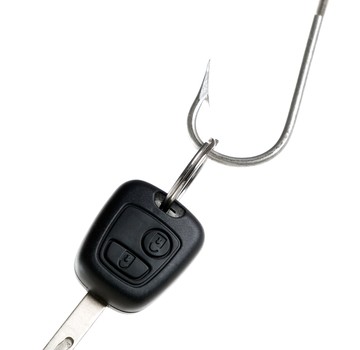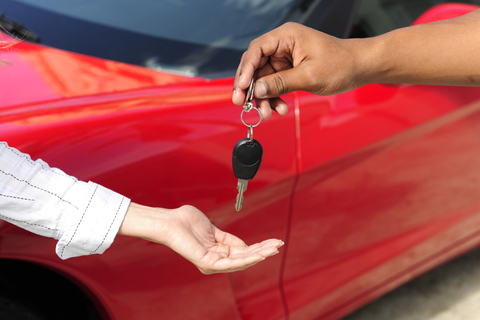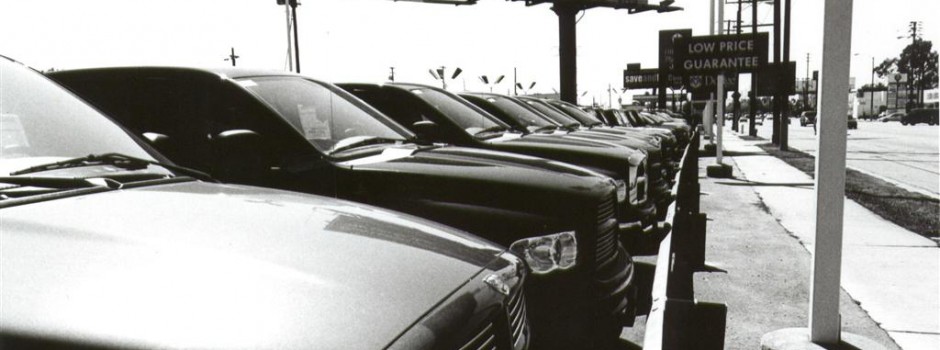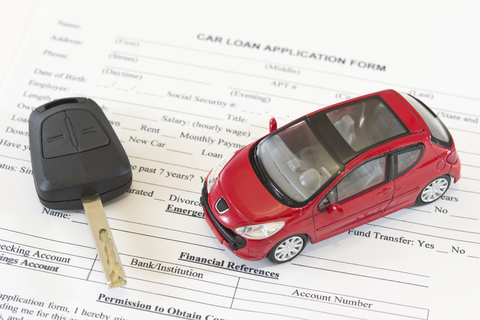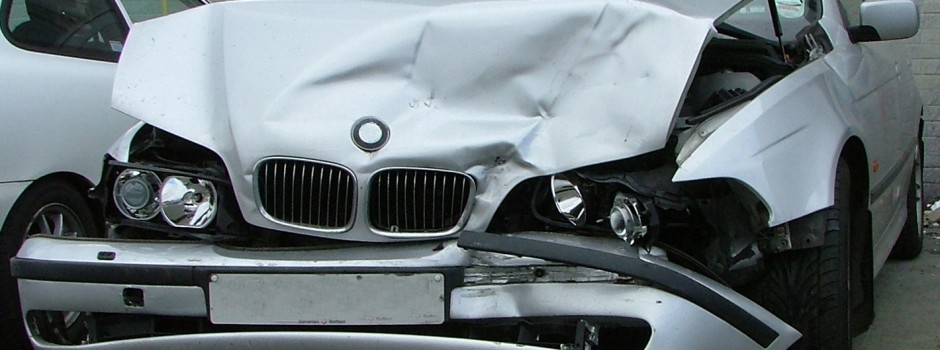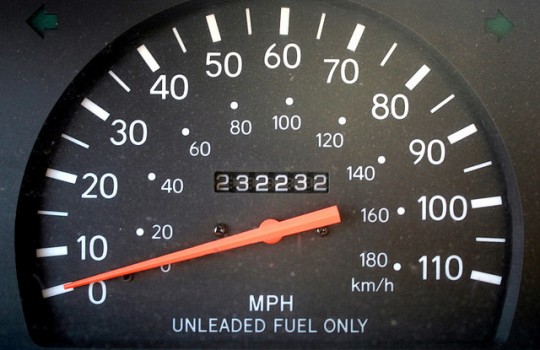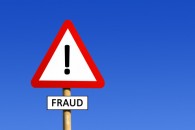
Auto Fraud
The field of potential auto dealer’s fraud is large. The term “Auto Fraud” is kind of a catch-all term that encompasses:
- Misrepresentations/Prior Accidents
- Misleading or illegal advertising
- Violation of Vehicle Title Statutes
- Illegally Charging Extra or Add-on Fees, including a Dealer Fee or Pre-delivery Service Fee
- Deferred Down or Pick-up payments Non-Disclosure
- Monroney Sticker Violations
- “Yo-yo” or Spot Delivery Financing arrangements
- Failure to Provide Buyers Guides
- Backdating of Contracts
- Prior Rental Non-disclosure
- Certified Vehicle Misrepresentations
- Odometer Fraud
- Failure to Provide Paperwork
The above list is not inclusive of every kind of Auto Fraud. Fortunately, Florida has a number of laws to protect consumers.
The principle law relating to the automobile dealer consumer relationship is Part VI of ch. 501, F.S. This section of law describes among other things prohibited dealer actions under the Florida Deceptive and Unfair Trade Practices Act (FDUTPA), and provides guidelines regarding motor vehicle pricing and notice to consumers. The state law supplements federal law in this area.
If you have been deceived or taken advantage of by a motor vehicle dealer, you may have a claim against them under FDUTPA in addition to other claims you might have. If you think you have been the victim of an unfair or deceptive trade practice regarding an auto purchase, call us to speak with a lawyer to determine if you have a case. All consumer consultations are Free! 305 677-3619
Do Your Research!
Before you start shopping for a used vehicle do your homework. It may save you serious money.
The car dealer has the home-field advantage when it comes to vehicle shopping so you will need to know a little something about the vehicles you are interested in and their values. You don’t have to be an expert but you need to have a baseline of knowledge in order to gauge on whether or not all things considered the dealer’s asking price for the vehicle is reasonable. Car prices from dealer to dealer vary a great deal and used car prices vary even more. Make sure when you are examining and comparing two similar used vehicles make sure you are doing an apples-to-apples comparison (similar model year, mileage, options, costs, repair and maintenance records, safety tests, and mileage through libraries, book stores, and web sites. Research the model year of the vehicle you are thinking of buying you want to know the strengths and weak points of that model vehicle. You’ll also what to know your typical fuel economy, and the cost for repair and maintenance. There are many resources online to help you do this research. It is also a good idea to do a little background look into the dealer you are buying the vehicle from. You may be surprised with what you find.
Cash or Credit?
Once you have settled on a particular car, you have two payment options: paying in full or financing over time. Financing increases the total cost of the car because you’re also paying for the cost of credit, including interest and other loan costs. You also must consider how much money you can put down, the monthly payment, the loan term, and the Annual Percentage Rate (APR). Rates usually are higher and loan periods shorter on used cars than on new ones. Dealers and lenders offer a variety of loan terms. Shop around to gain the knowledge to negotiate the best possible deal. Be cautious about financing offers for first-time buyers. They can require a big down payment and a high APR.
Be willing to walk away.
Don’t fall in love with the vehicle or let your emotions get the better of you. If you do you are more likely to overpay for the vehicle itself, pay more interest over the life of the vehicle loan, and get less money for your trade-in. If money is tight, you might consider paying less for a less expensive vehicle than you first had in mind.
Set the price First!
Car buyers have a very bad habit of shopping for or focusing on low down payments or monthly payments. Dealers are trained to extract the most profit out of every transaction. By getting you to “fall in love” with the vehicle the dealer will also try to have you focus on the “low monthly payments.” Dealers do this to distract you while they inflate other variables in the sale and financing transaction like the interest rate and finance charges, dealer fees and charges, dealer add-ons, extra warranties, and even increasing the price of the vehicle. This tactic will increase the dealer’s profit and cost you thousands over the life of the vehicle loan. Think of another large purchase like buying a home. You set and negotiate the price first before locking in payments. You have to know your budget and what you can comfortably afford to pay, but don’t let the dealer use that against you. This same rule applies to setting the value of your trade in. A dealer isn’t doing you any favors if they give you a deal on the new vehicle, and then offers you $2,000 below market value on your trade-in. The new vehicle purchase, the trade-in and financing are three separate negotiations — treat them as such.
The 4-Square Dealer shell game.
Some dealers pull out what’s called a four-square chart, which is designed to be very confusing to the consumer to fully understand what is going on. And what is going on is more dollars are coming out of your pocket. A former car salesman unveils on The Consumerist how that shell game is played: Buy using the 4-square game the unsuspecting consumer is put on the defensive and worn down with tricky math, while the salesperson appears to knock down prices.
Take a close look at the fees.
Before you sign anything, take a close look at all the numbers on each contract to ensure they are what you agreed upon. Don’t be surprised to find a number of fees on the sales contract, but be aware that some are standard, some are negotiable and some are simply outrageous. We have found most dealers in Florida impose a “Dealer Fee” or “Pre-Delivery fee”, which is intended to either increase their profit or offset costs they have incurred in preparing the vehicle and associated documents for the customer. The Florida statutes recognize this industry practice and require the following statement be included on all documents that include a line item for the fee:
“This charge represents costs and profit to the dealer for items such as inspecting, cleaning, and adjusting vehicles and preparing documents related to the sale.”
If the disclosure is not there and your are charged for this fee you should call the office for a free consultation.
Be cautioned on the add-on Dealer services and extras.
As if predatory fees aren’t bad enough, there are useless extras pushed by dealers, including rust-proofing, window VIN etching, fabric protection and paint sealant just to name a few. Be careful about paying for these things the truth is that all modern cars already have rust protection from the factory. VIN etching can be done yourself with a kit, but it is hardly the theft deterrent it’s claimed to be. Fabric protection can also be done yourself with a spray can, and paint sealant is just a liquid wax you can buy at an auto parts store for $10. Don’t be convinced that you don’t need any of it. Also be aware of extra warranties or service contracts, if you vehicle comes with a warranty already compare that warranty to the add-on warranty the dealer is selling as for the service contract you should really investigate as to what your are really getting.
Inspect the vehicle.
Whether you buy a used car from a dealer or an individual examine the vehicle using an inspection checklist. You can find checklists in magazines and books and on internet sites that deal with used cars.
- Test drive the Vehicle under varied road conditions on hills, highways, and in stop-and-go-traffic
- Ask if the dealer has a maintenance record for the vehicle.
- Hire a mechanic to inspect the car. While pulling a CARFAX or an AUTO CHECK report on the Vehicle can often be a good place to start, they are NOT always complete. There are instances where a dealer buys a Vehicle at auction with a “clean” CARFAX, and then uses that clean CARFAX to help sell the vehicle, while they may know or should know the Vehicle has some issue (rolled odometer, or accident damage). Have your own mechanic take a look at the vehicle. It could save you a lot of money, time and headaches.
Read the Buyer’s Guide
Federal Trade Commission’s Trade Regulation Rule Concerning the Sale of Used Motor Vehicles (the “Rule” or “Used Car Rule”), 16 CFR Part 455, which was promulgated on November 19, 1984. The Used Car Rule became effective on May 9, 1985. Violations of the Rule can result in the imposition of civil penalties of up to $10,000 per violation.
The Buyers Guide – Section 455.2 of the Rule requires dealers to prepare and display a window sticker called the “Buyers Guide” before offering a used vehicle for sale to a consumer. The Buyers Guide must disclose whether any warranty is offered and the basic terms of any warranty. If the dealer does not provide an express warranty, then the Buyers Guide must indicate that the vehicle is being offered for sale “as is” (with no express or implied warranties), or with only the applicable “implied warranties” required by state law.
The Buyers Guide gives a great deal of information, including:
- Warranty information;
- What percentage of the repair costs a dealer will pay under the warranty;
- The fact that spoken promises are difficult to enforce; and
- The major mechanical and electrical systems on the car, including some of the major problems you should look out for.
The Buyers Guide also tells you to:
- To get all promises in writing;
- keep the Buyers Guide for reference after the sale; and
- ask to have the car inspected by an independent mechanic before the purchase.
Yo-yo Sales / Spot Deliveries
So you h ave bought your new or used car. You are happy with your purchase, happy with your financing, and have even been showing it off to your friends and family. But then….the phone rings. It is the dealer who sold you the car and he or she tells you that unfortunately for you…the financing was not approved, but not to worry all you have to do is come back to the dealership pay a little bit more and sign new documents with slightly different terms for your purchase to be complete. A “spot delivery” occurs when you the consumer and the dealer sign an installment contract for the sale and financing of your new vehicle and where you the consumer take delivery of the new vehicle, “on the spot,” and before the dealer has assigned the contract to a third party lender, which is often a bank or finance company. The sale becomes a “Yo yo” when the dealer contacts you and gives you reasons like “the financing was not approved” or “you’ll need a co-signer” and and attempts to change the terms of the contract you signed to either “get you approved” or have you pay off the car. In reality the dealer is trying to get a second shot at negotiating a deal that you thought was final. If you find yourself in this situation, you should not just go in and renegotiate the deal. First, find out what the options are and be aware that may be just simply a ploy to get you to give up more money and sweetening the deal for the dealer.
ave bought your new or used car. You are happy with your purchase, happy with your financing, and have even been showing it off to your friends and family. But then….the phone rings. It is the dealer who sold you the car and he or she tells you that unfortunately for you…the financing was not approved, but not to worry all you have to do is come back to the dealership pay a little bit more and sign new documents with slightly different terms for your purchase to be complete. A “spot delivery” occurs when you the consumer and the dealer sign an installment contract for the sale and financing of your new vehicle and where you the consumer take delivery of the new vehicle, “on the spot,” and before the dealer has assigned the contract to a third party lender, which is often a bank or finance company. The sale becomes a “Yo yo” when the dealer contacts you and gives you reasons like “the financing was not approved” or “you’ll need a co-signer” and and attempts to change the terms of the contract you signed to either “get you approved” or have you pay off the car. In reality the dealer is trying to get a second shot at negotiating a deal that you thought was final. If you find yourself in this situation, you should not just go in and renegotiate the deal. First, find out what the options are and be aware that may be just simply a ploy to get you to give up more money and sweetening the deal for the dealer.
Re-read your copies of the contract and all other papers you signed before to see what, if anything, your agreement says will happen if the financing falls through. Don’t be afraid to ask the dealer questions like “Why do I have to bring the car back?” ; “What exactly went wrong with the financing?” ; “Who is responsible for this?” ; “Why isn’t this MY car”; and “What happens if if do not bring the car back?”. If you ask the dealer these questions, make sure to immediately after write down the dealer’s responses.
More often than not when it comes to “Yo-yo” sales something lurking in your documents of the deal that is a violation of local, state, and federal laws and regulations.
If the dealer has violated the law you do have remedies and you should talk to an attorney ASAP. Call the office for a free consultation.
What if I just want out of the deal?
Well you might be able to get out of the deal, but beware because the Dealer will often try to charge you for “use” , “mileage”, and “wear and tear” on the vehicle during the time you had it. Often these per day and\or per mile charges for use will be large and can use up or eat in to the down payment you made that should be refunded to you.
What about my trade-in?
Often this is the worst part of a “Yo-yo” sale. It is normal to trade-in a car when you buy a new one. However, when you do this you do not expect the Dealer will try to unwind the deal. Now the dealer tells you that financing did not go through and you don’t have extra money to contribute. You say you just want out of the deal and for the dealer to give you your trade-in back. The dealer tells you that they can not give you your trade-in back because they have already sold your trade-in to someone else. Now the dealer has you in a real pickle. You need a car and you are now desperate. So what do you do? You might feel pressured to sign a new contract or pay a little extra to the dealer just so that you can have the transportation that you need to work and live. In effect the dealer has you captive. When this happens you need legal representation, you need to call an attorney to assist you. State and federal laws and regulations like Truth in Lending Act (TILA) and the Fair Credit Reporting Act (FCRA) provide you with options.
If you are denied credit you have a right to know the reason.
If you get called back to the dealership because of an alleged financing problem, ask the dealer for the name, telephone number and address of the lending institution that rejected the financing and the name of someone there that you can talk to there. If the financing was actually rejected, you have a right to speak to the financing company about it. Federal law namely the Equal Credit Opportunity Act (ECOA) requires in these instances that notice to you be given as to why the loan was not approved.
Get all personal possessions out of the Vehicle!
If you get that call that your deal was not approved. Get everything out of the Vehicle INCLUDING YOUR SALE DOCUMENTS! Any document you signed when you “bought” the car may be relevant to your case, these documents may be very helpful to you and if you leave them in the glove compartment, they have a funny habit of disappearing after repossession.
Take pictures of the vehicle (the temp tag, odometer, and pictures showing the inside and outside condition of the vehicle). The Dealer may attempt to repossess the vehicle. A “Yo-yo” sale is bad enough you don’t also want to worry about recovering other personal possessions.
For more information see the Auto Finance Fraud page on our website.
Dealer Packing an d Add-on Fees
d Add-on Fees
Take a close look at the fees in the deal. In a “packing” case the customer is quoted an inflated monthly payment. If the consumer accepts this amount, the dealership often adds accessories (alarms, service contracts, GAP insurance, rust protection, paint/fabric protection, VIN etching, etc.) to the purchase contract to reach the inflated quoted price. You might not even realize that the accessories are optional. You also may not know that through the purchase contract you are actually paying extra for the accessories and services, which are often represented as “included” with the vehicle. Be careful about paying for these things and inquire about them if you are being charged for them The truth is that all modern cars already have rust protection from the factory. VIN etching can be done yourself with a kit, but it is hardly the theft deterrent it’s claimed to be. Fabric protection can also be done yourself with a spray can, and paint sealant is just a liquid wax you can buy at an auto parts store for $10. Don’t be convinced that you don’t need any of it. Also be aware of extra warranties or service contracts, if you vehicle comes with a warranty already compare that warranty to the add-on warranty the dealer is selling as for the service contract you should really investigate as to what your are really getting. We have found most dealers in Florida impose a “Dealer Fee” or “Pre-Delivery fee”, which is intended to either increase their profit or offset costs they have incurred in preparing the vehicle and associated documents for the customer. The Florida statutes recognize this industry practice and require the following statement be included on all documents that include a line item for the fee: “This charge represents costs and profit to the dealer for items such as inspecting, cleaning, and adjusting vehicles and preparing documents related to the sale.” If the disclosure is not there and you are charged for this fee you should call the office for a free consultation. Be cautioned on the add-on Dealer services and extras.
Bait and Switch.
Some dealers will advertise a vehicle with a great price, but when you show-up and the dealership ready to buy…they tell you unfortunately that advertised car sold …but not to worry they have a another “great deal” on a different vehicle that often is much more expensive.
Negative Equity
Dealer tells you that they can “pay off your trade-in and it does not matter how much you owe”. Just know that THERE IS NO FREE LUNCH. If you are upside-down on your trade-in (meaning you owe more on the loan than the vehicle is worth) the dealer will take the vehicle in trade, payoff the difference (hopefully), and then roll the negative equity into your new vehicle loan. You are still going to pay off that old loan through the new loan and with the new purchase you probably now have even more negative equity in your new vehicle.
The Monthly Fee Distraction.
Dealer tells you if I could get your payments to be $325.00 per month do we have a deal? Be careful as this is a common trap. Set the price of the Vehicle first! Car buyers have a very bad habit of focusing on low down payments or monthly payments. Dealers are trained to extract the most profit out of every transaction. By getting you to “fall in love” with the vehicle the dealer will also try to have you focus on the “low monthly payments.” Dealers do this to distract you while they inflate other variables in the sale and financing transaction like the interest rate and finance charges, dealer fees and charges, dealer add-ons, extra warranties, and even increasing the price of the vehicle. This tactic will increase the dealer’s profit and cost you thousands over the life of the vehicle loan. Think of another large purchase like buying a home. You set and negotiate the price first before locking in payments. You have to know your budget and what you can comfortably afford to pay, but don’t let the dealer use that against you. Know that it is very easy for the dealer to make the monthly payments to practically be whatever you want
The 4-Square Dealer shell game.
A confused buyer is a profitable buyer. Some dealers pull out what’s called a four-square chart that operates like a shell game played out on a piece of paper, involving a flurry of numbers associated with the price of the car, the down payment, the monthly payment, and the interest rate which is designed to be very confusing to the vehicle buyer to understand what is going on. And what is going on is more dollars are coming out of your pocket although it may look like the dealer is knocking down either the monthly payments, the vehicle selling price, and/or increasing your trade-in value. By the time this dealer’s rip-off tactic concludes, you’re so confused by the tricky math that you’re not sure what just happened. A former car salesman unveils on The Consumerist how that shell game is played.
Forgery
Dealerships sometimes forge the signature of customers on subsequent contracts that change the terms of the original signed contract (especially if the customer refuses to sign the new contract). Other commonly forged documents include: credit applications (with fraudulent representations about income, etc.), as well as buyer’s guides and disclosure forms (to prevent buyers from reading their buyers’ rights and/or information that may cause them to reconsider their purchase decisions).
Certified Used Vehicles
Many manufacturers and dealerships advertise used vehicles as “certified pre-owned,” supposedly guaranteeing to the customer that the vehicle is in good working order and free from major structural damage, including previous accidents. Often times, however, dealerships misrepresent used vehicles that have suffered previous accidents, structural damage (or other conditions that would preclude certification under the dealership’s advertised standards) as “certified” vehicles — misleading customers into paying a premium price for a damaged product.
Dealer tells you “You have bad credit”
If you don’t know your credit score the dealer can use that against you. Know your credit score before you negotiate financing. Don’t let the dealer tell you that you have bad credit and cannot either qualify for a loan or a lower rate. You can get a free credit report from the three main credit reporting agencies – TransUnion, Experian, and Equifax. What typically happens, the dealer’s salesman may quote you a price and payment that is acceptable, go to get the deal approved by the manager, and return claiming that due to a low credit score they need more money down, or to finance you at a higher interest rate, in an effort to add profit to the deal. Better thing to do is privately arrange your own financing with a person or place other than the dealer.
Low Ball offer on your Trade-in
When trading in your vehicle the dealer will quote you a price that they are willing to credit you for the vehicle’s value. Everyone knows the dealers retail vehicles and buy wholesale so it is often not a surprise that dealers will offer you less money for your trade in than you potentially receive in a private sale. However, don’t get taken advantage of. Know the value of your trade. Dealers often will quote you a very low value for your trade at first to see how knowledgeable you are about your trade-ins value and to see if you will accept such a low number. If you don’t accept the dealer’s first offer on you trade in, the dealer is hoping their offer will cause you to question your trade-in’s value, so that when they increase their offer on the trade-in, it will seem like a victory to you, but since they started out so low, you still end up on the short end.
Confusing Window Stickers
In 1958 congress passed the Automobile Information Disclosure Act which regulated sticker prices on new vehicles. Prior to the enactment of this law, there was often a large discrepancy between the showroom price and the actual price of a new vehicle. The sticker prices were not telling the full story. Most customer-quoted prices were for “stripped-down” models and did not include additions for preparation charges, freight charges, federal, state, and local taxes or optional factory-installed equipment requested by the purchaser. These hidden charges were used by some dealers to increase the selling price while giving the new vehicle buyer an inflated idea of their trade-in allowance. The Law congress passed was designed to prevent the abuse of the new vehicle list prices, but would not prevent dealers and buyers from bargaining over vehicle prices. The law mandates that window stickers on the vehicle must include:
- The manufacturer’s suggested retail price (MSRP)
- Engine and transmission specifications
- Standard equipment and warranty details
- Optional equipment and pricing
- City and highway fuel economy ratings, as determined by the Environmental Protection Agency (EPA)
- As of September 2007, crash test ratings as determined by the National Highway Traffic Safety Administration
However as you might expect dealers have figured out a way to evade this law. An alarmingly large number of Florida dealers display a “dealer sticker” next to the official required window sticker. It will look official and it typically has the same coloring and fonts, type sized and layout, but the only purpose is to fool buyers into paying more for the vehicle. The dealer sticker will include options that were installed after the car arrived from the manufacturer. They’re usually worthless and some aren’t even options at all, but simply made-up charges. For example, you might see things like “Special Value Package” which includes fabric protection, or charges labeled ADP or ADM. Those stand for “Additional Dealer Profit” and “Additional Dealer Markup”. They are completely worthless and pure profit for the dealer! This practice can adversely affect a good buying decision in a number of ways. Some buyers focus mainly on how big a trade-in allowance they can get for their old car. If one dealer has the same car marked up $2,500 more than another dealer, he can offer you $2,500 more for your trade and still make the same profit as the other dealer. Some car buyers focus on how big a discount they get from “sticker” and it’s easy to give a higher discount if you have artificially inflated the sticker price the thousands of dollars from the start.
Title Washing
Title washing refers to the process of registering and re-registering a used vehicle with a questionable history in multiple states to rid the car’s title of its branded, rebuilt, or salvage status. Florida requires brands be placed on the vehicle’s certificate of title if the vehicle was totaled in a car crash, flood, fire or other insurance claim and was rebuilt with salvage or junk parts. Florid also requires brands of the vehicle’s certificate of title if the vehicle has been licensed, registered, or used as a taxicab, police vehicle, or short-term-lease vehicle, or a vehicle that has been repurchased as a lemon law buy back. The purpose of the brands on the titles is to give the prospective vehicle buyer notice of issues concerning the used vehicle’s prior history. It also puts the buyer on notice to have the vehicles’ safety features checked out. These brands are important to consumers and they affect the branded vehicle’s value (you wouldn’t pay the same price for a vehicle that has been rebuilt then one without any previous accidents). Thus, some dealers try to “hide the ball” and “wash” the vehicle’s titles. Bad dealers are pretty well aware that some states` laws are more lax as what constitutes a salvage title or don`t prohibit vehicles to be marketed from one state to another without vehicle`s past history being considered. They take the cars to a different state to have it registered without any branding, then bring back to Florida and sell to unsuspecting consumers. This is known as title washing also known as ”white washing” titles. The result of title washing is that buyers pay far more for a totaled or salvaged vehicle supposing that they`re are purchasing a used car in good shape. Often car owners know about car`s actual condition when they have completed the deal, taken the car home and started to experience different problems stemming from hidden defects. Moreover salvaged vehicles having serious damage (involving vehicle`s brakes, wiring, engine, etc.) can cause serious car crashes resulting in injuries and deaths. See Non-Disclosed Damage / Rebuilt Vehicles page.
Buy Here Pay Here Dealers
Buy-Here Pay-Here dealers must be both a licensed motor vehicle dealer (Licensed by the DMV) but also hold a Motor Vehicle Retail Installment Seller license from the Office of Financial Regulation. The license issued for retailers of motor vehicles who finance by installment contract to retail buyers. This license is required by firms that sell and finance automobiles, trucks, trailers, RV’s, motorcycles, and mobile homes.
Florida Statutes limit the maximum finance charge that a lender can charge a consumer on a car loan, the maximum rate of interest depends on the age of the car, and the length of the loan term.
In reality many of the so-called Buy Here Pay Here Dealers do not really operate as they purport to be. To learn more click on:
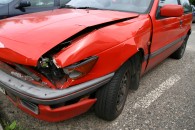 What is a “rebuilt wreck”
What is a “rebuilt wreck”
“No way!” you exclaim as the dealer tells you the price of the lightly used Infinity that looks like it just rolled out of the factory. “Thats right!” he replies, almost as elated as you are. You get excited about the prospect of getting this great deal and you impulsively decide to buy it. How can you refuse? Everyone loves a great deal and you can’t bare the thought of someone else getting this deal…There might be a reason behind this great deal.
There’s a possibility that you are buying what is called a “rebuilt wreck.”
According to Consumer Reports, approximately one million salvage vehicles return to the roads each year. There are potential dangers, both physical and financial, involved with buying a “rebuilt wreck.”
A “salvage” is a car that an insurance company has determined is a “total loss.” A rebuilt wreck is when that salvage car is bought, rebuilt and resold. The qualifications of a “salvage” vehicle vary between states and this, as will be mentioned later, is a problem that perpetuates the fraud related to rebuilt wrecks. In Florida, a car is considered “salvage” if:
- The cost of fixing the car (determined by the insurance company) is 80 percent or more of the value to completely replace it.
In Florida, once a car is determined a “salvage,” the current owner must apply for a salvage title before it’s disposed. This is the state’s attempt to keep track of the vehicle’s history
This process is extremely important because it allows the state to “brand” the car title so future owners (if there are any) know it’s history. Some examples of brands that appear on titles are Reconstructed, Recovered Theft or Salvage.
What are the dangers
Just the term rebuilt wreck involuntarily invokes a certain fear in buyers. This car was totaled, smashed up, destroyed to almost nothing and yet here it stands, all patched up and shining like new. There’s a disconnect about that situation that makes us rightfully wary.
Consumers should always look at a rebuilt car with a critical eye because many times, in order to capitalize on the potential profits, dealers and mechanics take short cuts to save on costs.
Dealers and mechanics attempt to save money by accepting shoddy repair work, covering up water damaged floors with new carpets, or even refusing to replace something as important (and lifesaving) as airbags because realistically, how would the consumer ever really know the difference? They may even rip out the airbag indicator light as a way to cover their tracks. People have died from this practice (see this CBS article http://www.cbsnews.com/news/rebuilt-wrecks-deadly-road-hazard/).
Sometimes, using subpar welding and a mishmash of supplies, mechanics are even able to fuse two halves of two different wrecked cars together, creating a scary Frankenstein vehicle that has not only seemingly indefinite mechanical dysfunctions but that is actually really dangerous because it’s not properly done.
It’s these cost saving techniques that allow the dealers to sell these cars at such low prices. So while the extremely low price tag may be enticing, you will probably end up paying more for the car in the long run because of repairs and maintenance needed to fix the broken product you were, sometimes, unknowingly dealt.
How do they pull it off?
A lot of people don’t realize that they are buying a rebuilt wreck either because they are purely uninformed and don’t know to ask the dealer or do a background check on the car (via carfax.com, for example). But sometimes the title of a rebuilt wreck can be completely clean. How can this be, if, as we saw earlier, people are required to title their car “salvage” before they get rid of it?
White Washing
Here’s where the difference in state laws comes in. What in one state is considered “salvage” may not be considered the same thing in a different state. So, if a dealer buys a car in a Nebraska auction, they may be able to get a clean title from that state and bring it back to Florida, or another state, where the car WOULD be considered a salvage. Now the car has no mark or brand on the title to let the future owner know the previous state or history of the car. This process of clearing the title is called “white washing.” This whole process, though rather extensive and time consuming, is worth it to the dealers because the price of a clean titled used car is significantly higher than the price of a “rebuilt wreck” or “salvaged” used car.
States realize that differing standards makes it easier for dealers to white wash. So they have developed a new system, called National Motor Vehicle Title Information System (NMVTIS), that pools information from 39 states (11 more are currently being developed) and allows both consumers and states valuable access to the car’s title history.
Not all dealers are sly enough to whitewash. Sometimes they may lie and say that the car is only “used” even though it clearly states on the title that it’s a salvage. Usually consumers don’t bother to ask to see the title to verify and sometimes, in cases where they do, the dealer says they can’t find it or they may just refuse to show it to you.
How to spot it
So what can you do to at least know before hand what kind of car you’re buying? Before buying, you should:
- Get a vehicle history report (Carfax, Auto Check.etc BUT BE ADVISED THEY ARE NOT ALWAYS COMPLETE SO DONT RELY ON THEM ONLY)
- It can take a state up to three months to report a car as “salvage” to such sites. So, even if the car comes up clean, you should ask where/when the dealer got it.
- Have a mechanic you know and trust examine the car
- If the seller refuses to let you do this, interpret that as a red flag
- If they try to avoid letting you see the title, again, red flag
- If you see the title is new and completely clean, and it’s from another state, look into it further.
- Look physically at the car. Some typical signs the vehicle has had work done are:
- Paint that chips off or doesn’t match indicates damage repair and poor blending.
- Paint overspray on chrome, trim, or rubber seals around body openings reveals that the adjacent panel was repaired.
- Misaligned fenders suggest a poor repair job or use of non-original equipment manufacturer (non-OEM) parts.
- CAPA (Certified Automotive Parts Association) sticker on any part may indicate collision repair.
- Uneven tread wear reveals wheel misalignment, possibly because of frame damage.
- Mold or air freshener cover-up suggests water damage from a leak or flood.
- Silt or in trunk may mean flood damage.
- Fresh undercoating on wheel wells, chassis, or engine strongly suggests recent structural repairs covered up.
- Door that doesn’t close correctly could point to a door-frame deformation and poor repair.
- Hood or trunk that doesn’t close squarely may indicate twisting from side impact.
- Dashboard lights, power windows, and other electronics with intermittent problems could be a sign of flood damage.
- Dashboard air-bag indicator that doesn’t light up could mean the air bag was replaced improperly–or wasn’t replaced at all–after an accident.
- Big dents, kinks in structural components, or crimped or crunched fuel lines and pipes underneath are the easiest problems to find because rebuilders assume you won’t be looking there.
- Uneven surfaces on frame components could be filler, seam sealer, or welding beads.
- Damaged/gouged nuts and metal on top surface of strut tower (which connects the front wheels to the frame) in engine compartment may mean the frame was realigned.
- New metal on only one part of the hood apron shows section repair rather than replacement of the entire apron piece.
- Welding bead anywhere on heavy frame members underneath the engine suggests frame-rail sectioning or sloppy repair of a cutout made in the rail to perform repair work.
- Inconsistent welds around hood apron, door, door frame, or trunk exemplify a non-factory weld.
- Frayed safety belts or belt fibers that have melted together because of friction indicate a previous frontal impact above 15 mph.
- Missing car emblem or name on trunk may mean a non-OEM part was used.
Beware
Yes, discovering that you bought a rebuilt wreck is disappointing news, but there is nothing illegal about selling a rebuilt wreck. The legalities come in to play when that fact is intentionally hidden from you. For example, you find on Carfax or Auto Check report that states that the insurance company declared this car a salvage one year ago, but the physical title is clean.
Links
Here is a link to news story about rebuilt wrecks and their dangers.
http://abcnews.go.com/video/playerIndex?id=8666173
http://www.cbsnews.com/news/rebuilt-wrecks-deadly-road-hazard/
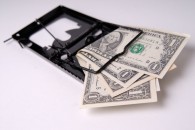 Take a close look at the fees.
Take a close look at the fees.
Before you sign anything, take a close look at all the numbers on each contract to ensure they are what you agreed upon. Don’t be surprised to find a number of fees on the sales contract, but be aware that some are standard, some are negotiable and some are simply outrageous. We have found most dealers in Florida impose a “Dealer Fee” or “Pre-Delivery fee”, which is intended to either increase their profit or offset costs they have incurred in preparing the vehicle and associated documents for the customer. The Florida statutes recognize this industry practice and require the following statement be included on all documents that include a line item for the fee:
“This charge represents costs and profit to the dealer for items such as inspecting, cleaning, and adjusting vehicles and preparing documents related to the sale.”
If the disclosure is not there and you are charged for this fee you should call the office for a free consultation at 305 677 3619.
Be cautioned about Dealer add-on services and extras.
As if predatory fees aren’t bad enough, there are useless extras pushed by dealers, including rust-proofing, window VIN etching, fabric protection and paint sealant just to name a few. Be careful about paying for these things the truth is that all modern cars already have rust protection from the factory. VIN etching can be done yourself with a kit, but it is hardly the theft deterrent it’s claimed to be. Fabric protection can also be done yourself with a spray can, and paint sealant is just a liquid wax you can buy at an auto parts store for $10. Don’t be convinced that you don’t need any of it. Also be aware of extra warranties or service contracts, if you vehicle comes with a warranty already compare that warranty to the add-on warranty the dealer is selling as for the service contract you should really investigate as to what your are really getting.
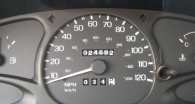

 Odometer Fraud Cheats Car Buyers
Odometer Fraud Cheats Car Buyers
Odometer Fraud is not a problem of yesterday it still occurs more often than you think. In 2002, National Highway Traffic and Safety Administration (NHTSA) determined more than 450,000 vehicles to be sold each year with false odometer readings, milking American car buyers out of more than $1 billion annually. – Source National Highway Traffic and Safety Administration.
So that shiny, freshly detailed, never been in a wreck, gotta buy it today, new to you, low mileage, late model used car or truck may be your worst nightmare if the odometer has been tampered with.
Federal and Florida Laws are in place to protect you from this crime. It is a Felony for anyone to knowingly tamper with, adjust, alter, set back, disconnect, or fail to connect an odometer of a motor vehicle, so as to reflect a lower mileage than the motor vehicle has actually been driven, or to supply any written odometer statement knowing such statement to be false or based on mileage figures reflected by an odometer that has been tampered with or altered.
When the above law is violated, title fraud and grand theft, both felonies, are also added to the list of arrest charges against the violator. The three Felonies each carry a fine as much as $5,000.00 and/or five years in a state prison or both such fine or imprisonment.
One approach to showing consumer loss is to look at the types of actual expenses a consumer pays as a direct result of this type of fraud. A typical rollback in a scheme is 40,000 to 45,000 miles. The impact of such a rollback on the wholesale price of the vehicle alone exceeds $4,000.00. Obviously, retail prices increase even more than wholesale. (The effect on wholesale values of used cars of a 40,000 mile rollback, is between $3,400 to $4,000, depending upon the type of car involved and the date of the rollback.)
Maintenance Cost: Increased maintenance costs are not always reflected in purchase price considerations, as some owners have vehicles that are virtually worthless as the result of the rollback.
Lost Time: Buyers of high mileage vehicles frequently spend considerable time dealing with unexpected maintenance –often time is lost from work when a car is the person’s method of transportation to his or her employment.
Taxes: The sales tax imposed on the amount of the purchase price attributable to the rollback, and property taxes imposed based on the falsely inflated purchase price.
Finance Charges: The cost of financing the portion of a vehicle’s cost that stems from the rollback.
Insurance Cost: Unnecessary insurance carried due to a false belief that a vehicle is low mileage.
Vehicle Safety: Additionally, and perhaps more importantly, rolling back a car’s odometer directly affects the safety of the car. (Wear and tear on the engine and suspension system of the vehicle)
When viewed in light of all of these factors, some of which (e.g.,property taxed and insurance costs) are recurring, it is apparent that an extremely conservative estimate of the average loss per vehicle caused by an odometer fraud scheme would be, at minimum, $4,000.00.
BEFORE you buy a vehicle, look for signs of wear on the brake and gas pedal pads, or the recent replacement of the pads. Look for loose screws around the dashboard, observe the wear and tear on seats, or notice new seat cover installation. Cars with low mileage probably will not have these problems in wear. If the car has less than 20,000 miles, it should not have a replacement set of tires. And if the speedometer cable makes a clicking sound, leave it alone. Ask for maintenance records of the vehicle and the original owners manual for the vehicle. Don’t ever fall in love with a hunk of metal; your emotions may override your reason or intuitions. When you consider buying a vehicle, you should take it to a good mechanic and have him compare the mileage recorded against the overall wear and tear on the vehicle. This would be money well spent. If the seller makes a statement about the care, maintenance, prior use or the integrity of the vehicle, get the statement in writing signed by the seller and you.
If you have information on any operation or incident where this criminal act is being committed or of individuals involved in this crime, PLEASE contact your Florida Highway Patrol at the address listed below. You may remain anonymous with your information and be kept confidential.
Source: Florida Highway Patrol Bureau of Investigations – Odometer Fraud
Neil Kirkman Building, Room B472 2900 Apalachee Parkway Tallahassee, FL 32399-0552
